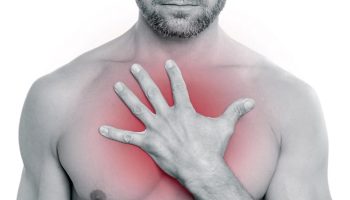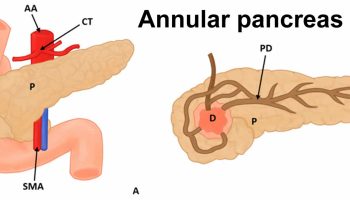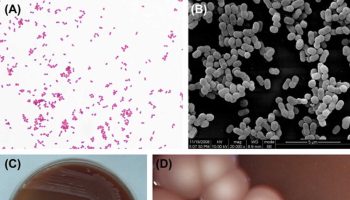Contents
What is aerophagia
Aerophagia is a functional gastrointestinal disorder characterized by repetitive air swallowing due to a nervous habit that occurs even when a person is not eating or drinking. Patients with aerophagia typically swallow air unconsciously, and it is thought that it is a learned habit. Aerophagia occurs most often in people who are very anxious or who have mental health problems. However, it also is seen in teenagers who want to show off their ability to burp loudly. Functional aerophagia involves excessive air swallowing causing progressive abdominal distension and discomfort, burping and flatulence.
The typical clinical presentation of functional aerophagia is a non-distended abdomen in the morning, progressive abdominal distension during the day, visible, often audible, air swallowing and excessive flatus 1. When functional aerophagia is associated with various gastrointestinal symptoms, such as burping, abdominal pain, flatulence and hiccups, this condition is defined as pathologic aerophagia 2. Pathologic aerophagia is present in 8.8% of the mentally retarded population 3. The mechanisms of onset of functional aerophagia are correlated with involuntary paroxysmal openings of the cricopharyngeal sphincter followed by air swallows without cricopharyngeal swallowing movement sequences 4. The Rome II and III criteria for functional gastrointestinal disorders include the definition of aerophagia 5. In many reported cases, the diagnosis is missed initially and parents often deny a functional origin of the disease to search for organic diseases. Gastrointestinal symptoms can be associated with a reduction in oral intake.
There are no studies about the prevalence of aerophagia in a pediatric population without mental retardation and the correct diagnosis is missed in most patients.
Aerophagia diagnosis must include at least two of the following 6:
- Air swallowing
- Abdominal distension because of intraluminal air
- Repetitive belching and/or increased flatus
To make a diagnosis of aerophagia, 2 criteria must be met: (1) the patient must be observed swallowing air and (2) the patient must experience repetitive belching 7. The above conditions must occur at least 12 weeks out of a year and must be troublesome 8.
The vast majority of patients with aerophagia actually have an increased frequency of normal swallowing, whereas swallowing large volumes of air is more characteristic of institutionalized patients with aerophagia 9. Increased swallow frequency is postulated to be secondary to stress or anxiety. Therefore, patients with aerophagia should be screened for psychiatric illnesses as this can be a common symptom of depression and anxiety 10. If aerophagia is a consequence of a psychiatric illness, then the underlying disease should be treated. Additionally, a study by Calloway et al. 11 has suggested that biofeedback may be useful. Although dietary modifications are usually suggested (i.e., eating slowly, taking small swallows, and avoiding carbonated drinks), they are rarely successful 7. Because stress is thought to contribute to aerophagia, stress reduction techniques could also prove useful.
Excessive belching, passing gas and bloating often resolve on their own or with simple changes. If these are the only symptoms you have, they rarely represent any serious underlying condition.
Consult your doctor if your symptoms don’t improve with simple changes, particularly if you also notice:
- Diarrhea
- Persistent or severe abdominal pain
- Bloody stools
- Changes in the color or frequency of stools
- Unintended weight loss
- Chest discomfort
- Loss of appetite or feeling full quickly
These signs and symptoms could signal an underlying digestive condition. Intestinal symptoms can be embarrassing — but don’t let embarrassment keep you from seeking help
How to stop aerophagia
You can avoid aerophagia:
- Eat and drink slowly. Taking your time can help you swallow less air. Try to make meals relaxed occasions; eating when you’re stressed or on the run increases the air you swallow.
- Chew your food thoroughly before you swallow.
- Avoid carbonated beverages, such as soda and beer, and do not drink through a straw. They release carbon dioxide gas.
- Keep calm. Tension and anxiety can cause you to swallow air.
- Do not chew gum and hard candy. When you chew gum or suck on hard candy, you swallow more often than normal. Part of what you’re swallowing is air.
- Do not smoke or use other tobacco products. When you inhale smoke, you also inhale and swallow air.
- If you wear dentures, make sure they fit properly. Have them readjusted if you have gained or lost weight. Poorly fitting dentures can cause you to swallow excess air when you eat and drink.
- Get moving. It may help to take a short walk after eating.
- Treat heartburn. For occasional, mild heartburn, over-the-counter antacids or other remedies may be helpful. Gastroesophageal reflux disease (GERD) may require prescription-strength medication or other treatments.
Aerophagia CPAP
Aerophagia can develop during CPAP (continuous positive airway pressure) use for patients with obstructive sleep apnea. A well-known but poorly understood side effect of CPAP therapies is aerophagia, air entering the esophagus and stomach rather than the lungs 12. But most CPAP patients do not openly complain of aerophagia symptoms, and clinicians may not specifically ask about it 13. Furthermore, there is minimal literature available concerning CPAP-related aerophagia and its consequences.
Gastric distension, a consequence of aerophagia, can increase gastroesophageal reflux (GER) by increasing transient lower esophageal sphincter relaxations, the most common cause of reflux 12.
To examine CPAP-related aerophagia prevalence, Shepherd et al. 12 examined consecutive obstructive sleep apnea patients currently on CPAP undergoing polysomnography for optimal CPAP pressure determination. Note that this CPAP population may have been enriched with patients having difficulty tolerating CPAP 12. Using a validated gastroesophageal reflux (GER) questionnaire that was altered to examine sleep-related GER symptoms and aerophagia, they noted that of 259 patients, 130 (50%) had at least one aerophagia symptom during the previous period of CPAP use (median CPAP use of 1 to 6 months). Aerophagia was defined by the presence of one symptom during CPAP use. Since some symptoms are not specific for aerophagia (diarrhea), this study may have overestimated aerophagia prevalence. Nevertheless, the presence of aerophagia needs to be assessed in our CPAP patients, especially in those with difficulty tolerating or adhering to CPAP.
In obstructive sleep apnea patients with gastroesophageal reflux (GER), CPAP use reduces sleep-related gastroesophageal reflux symptoms and esophageal acid contact times during sleep 14. Shepherd et al. 15 previously noted that CPAP increased esophageal pressure and lower esophageal sphincter (LES) tone, thus reducing the risk of individual gastroesophageal reflux events. However, in this current investigation, the use of gastroesophageal reflux medications, gastroesophageal reflux symptoms and nighttime-related gastroesophageal reflux symptoms, predicted aerophagia with CPAP use. Furthermore, a subset of 127 patients completed the same questionnaire before initiating CPAP therapy and individuals with preexisting gastroesophageal reflux symptoms were not more likely to develop aerophagia while on CPAP; thus the authors concluded that aerophagia may actually precipitate gastroesophageal reflux.
There are many unanswered questions concerning CPAP-induced aerophagia. First, it may be difficult to quantitate, and much work needs to be done to better define and quantitate it in a validated way. Secondly, investigations are needed to evaluate how CPAP-related aerophagia causes individual gastroesophageal reflux events. For instance, is the esophago-upper esophageal sphincter (UES) contractile reflex altered in OSA patients? How does CPAP alter this reflex? What differentiates OSA subjects with aerophagia versus those without aerophagia from an esophageal manometry standpoint? How can transient LES relaxations, the most common cause of individual gastroesophageal reflux events, be prevented when aerophagia occurs? Treating gastroesophageal reflux events triggered by CPAP-induced aerophagia can be problematic. Baclofen is the only medication available that reduces transient LES relaxation frequency.5 Currently, no data exist on how to best manage CPAP-induced aerophagia. Does lowering CPAP pressure, adding expiratory pressure release, or using auto-adjusting CPAP or bilevel PAP decrease aerophagia? Data need to be collected on how best to manage these patients.
One potential way to prevent aerophagia would be to increase upper esophageal sphincter pressure during sleep. With sleep onset, upper esophageal sphincter pressure decreases, predisposing to aerophagia. Although increasing upper esophageal sphincter pressure during sleep may be difficult, applying extrinsic pressure to the area of the upper esophageal sphincter may increase its pressure. Shaker et al. have developed an adjustable soft band attached to a small pressure pad that is externally applied around the neck, compressing the upper esophageal sphincter between the cricoid cartilage and the cervical vertebrae, resulting in an increase in upper esophageal sphincter pressure 16. This UES Assist Device is currently undergoing clinical trials for potential FDA approval, and it has not been tested in aerophagia patients using CPAP.
Aerophagia symptoms
Aerophagia involves excessive air swallowing causing progressive abdominal distension and discomfort, burping and flatulence. The symptoms in children are a non-distended abdomen in the morning, progressive abdominal distension during the day, visible, often audible, air swallowing and excessive flatus. Resolution of the abdominal distension occurs during the night by absorption of gas and by flatulence 17. Aerophagia can occur in sudden acute attacks but also chronically.
Aerophagia diagnosis
Clinical evaluation of patients with aerophagia:
- Suggestive history: bloating, belching, flatulence, distension, constipation, abdominal pain, no vomiting; history of trigger stressful events
- Physical examination: regular growth curve, increased tympany over the abdomen, normal bowel sounds, no signs of ileus or other alarm signs
- Laboratory investigations: complete blood count, erythrocyte sedimentation rate, C-reactive protein, kidney and liver functionality tests, celiac disease tests, paper radioimmunosorbent test and radioallergosorbent test, iron biochemical parameters, calprotectin, urinalysis
- Abdominal radiograph: distended bowels, large volume of intestinal air, no air-fluid levels
- Other investigations according to your healthcare provider discretion
A Pediatric Working Team defined the symptom-based criteria for diagnosing aerophagia as at least 12 weeks in the preceding 12 months of two or more of the following signs and symptoms:
- Air swallowing
- Abdominal distention due to intraluminal air
- Repetitive belching and/or increased flatus (gas)
Aerophagia is associated with variable combinations of repeated audible swallows, loss of appetite, abdominal pain, excessive gas, and/or excessive burping.
Aerophagia may be confused with gastroesophageal reflux disease (GERD) because noises in the throat are sometimes described by parents or observed by the clinician.
Aerophagia may also be confused with a motility disorder because of the gaseous abdominal distention. Typically, the distention increases as the day goes on. As the child sleeps, gas passes, leaving the abdomen flat by morning.
The diagnosis of a pediatric functional gastrointestinal disorder like aerophagia, in a child with a normal physical examination and growth history, may be made with confidence by satisfying the symptom-based diagnostic criteria.
A hydrogen breath test may be used to test for lactose malabsorption or bacterial overgrowth, and to evaluate intestinal transit time. Breath testing is comfortable, inexpensive, and reassuring when the results are normal.
An early diagnosis of aerophagia will save family members from the unnecessary worry that comes when thinking about a disease. It also saves the child from unnecessary discomfort and from risks associated with a medical evaluation that involves extensive tests.
Aerophagia treatment
Aerophagia has been included in the Functional Gastrointestinal Disorder Classification from the Rome II criteria for irritable bowel syndrome and the Rome III Committee Consensus. Management of aerophagia implies a correct diagnosis with a careful history and a minimal number of diagnostic studies to exclude organic disease (malabsorption and intestinal obstruction) 3. An overlapping of functional aerophagia with other functional gastrointestinal disorder-like irritable bowel syndrome (IBS) or constipation can be found.
A distinction should be made between patients with aerophagia who have chronic stable symptoms and patients with acute and severe episodes of aerophagia with threatening situations (mainly occurring in mentally disabled patients) 2. Neuropsychiatric consulting and assessment is always recommended.
If after clinical evaluation, no organic disorders were identified and a behavioral approach can help with improvement of symptoms. Speech therapy can be considered a very important approach as it may make the patient conscious of his/her behavior 18. A diet free of beverages containing gas may help reduce the volume of intra-intestinal gas and alleviate symptoms. In addition, drugs such as simethicone and dimethicone can reduce gas formation in the bowel 19. The education of the parents in terms of gulping sounds and movements suggestive of air swallowing may be considered an important part of the combined therapy.
Because stress or changes in emotional state is thought to contribute to aerophagia, stress reduction techniques could also prove useful. Relaxation and breathing techniques can be helpful. Psychotherapies may be helpful in some cases.
- Morabito G, Romeo C, Romano C. Functional aerophagia in children: a frequent, atypical disorder. Case Rep Gastroenterol. 2014;8(1):123–128. Published 2014 Apr 5. doi:10.1159/000362441 https://www.ncbi.nlm.nih.gov/pmc/articles/PMC4025155[↩]
- Bredenoord AJ. Management of belching, hiccups, and aerophagia. Clin Gastroenterol Hepatol. 2013;11:6–12[↩][↩]
- Loening-Baucke V. Aerophagia as cause of gaseous abdominal distention in a toddler. J Pediatr Gastroenterol Nutr. 2000;31:204–207[↩][↩]
- Hwang JB, Choi WJ, Kim JS, Lee SY, Jung CH, Lee YH, Kam S. Clinical features of pathologic childhood aerophagia: early recognition and essential diagnostic criteria. J Pediatr Gastroenterol Nutr. 2005;41:612–616[↩]
- Helgeland H, Flagstad G, Grøtta J, Vandvik PO, Kristensen H, Markestad T. Diagnosing pediatric functional abdominal pain in children (4–15 years old) according to the Rome III Criteria: results from a Norwegian prospective study. J Pediatr Gastroenterol Nutr. 2009;49:309–315[↩]
- Helgeland H, Flagstad G, Grøtta J, Vandvik PO, Kristensen H, Markestad T. Diagnosing pediatric functional abdominal pain in children (4–15 years old) according to the Rome III Criteria: results from a Norwegian prospective study. J Pediatr Gastroenterol Nutr. 2009;49:309–315.[↩]
- Talley NJ, Stanghellini V, and Heading RC. et al. Functional gastroduodenal disorders. Gut. 1999 45suppl 2. II37–II42[↩][↩]
- Appleby BS, Rosenberg PB. Aerophagia as the initial presenting symptom of a depressed patient. Prim Care Companion J Clin Psychiatry. 2006;8(4):245–246. https://www.ncbi.nlm.nih.gov/pmc/articles/PMC1560900/[↩]
- Whitehead W. Behavioral medicine approaches to gastrointestinal disorders. J Consult Clin Psychol. 1992;60:605–612[↩]
- D’Mello D. Aerophagia and depression: case report. J Clin Psychiatry. 1983;44:387–388.[↩]
- Calloway SP, Fonagy P, and Pounder RE. et al. Behavioral techniques in the management of aerophagia in patients with hiatus hernia. J Psychosom Res. 1983 27:499–502.[↩]
- Shepherd K, Hillman D, Eastwood P. Symptoms of aerophagia are common in patients on continuous positive airway pressure therapy and are related to the presence of nighttime gastroesophageal reflux. J Clin Sleep Med. 2013;9(1):13–17. Published 2013 Jan 15. doi:10.5664/jcsm.2328 https://www.ncbi.nlm.nih.gov/pmc/articles/PMC3525982[↩][↩][↩][↩]
- Harding SM. CPAP-related aerophagia: awareness first!. J Clin Sleep Med. 2013;9(1):19–20. Published 2013 Jan 15. doi:10.5664/jcsm.2330 https://www.ncbi.nlm.nih.gov/pmc/articles/PMC3525983/[↩]
- Green BT, Broughton WA, O’Connor JB. Marked improvement in nocturnal gastroesophageal reflux in a large cohort of patients with obstructive sleep apnea treated with continuous positive airway pressure. Arch Intern Med. 2003;163:41–5[↩]
- Shepherd KL, Holloway RH, Hillman DR, et al. The impact of continuous positive airway pressure on lower esophageal sphincter. Am J Physiol Gastrointest Liver Physiol. 2007;292:G1200–5[↩]
- Shaker R, Naini SR, Hafeezullah M, et al. A novel UES assist device for prevention of supine pharyngeal reflux of gastric content. Gastroenterology. 2011;140(Suppl 1):S-190[↩]
- Maurage CCHM, Delaperriere NND, Orega MMO, Roulet Renolleau NNRR, Labarthe FFL, Faure NNF, Leddet IID, Robert MMR. Air swallowing in non-deficient children: an under-diagnosed disease. J Pediatr Gastroenterol Nutr. 2004;39(suppl 1):S444[↩]
- Morabito G, Romeo C, Romano C. Functional aerophagia in children: a frequent, atypical disorder. Case Rep Gastroenterol. 2014;8(1):123–128. Published 2014 Apr 5. doi:10.1159/000362441 https://www.ncbi.nlm.nih.gov/pmc/articles/PMC4025155/[↩]
- Benninga MA, Peeters B, Hennekam RC. Fifth European Paediatric Motility Meeting. J Pediatr Gastroenterol Nutr. 2011;53, suppl 2[↩]





